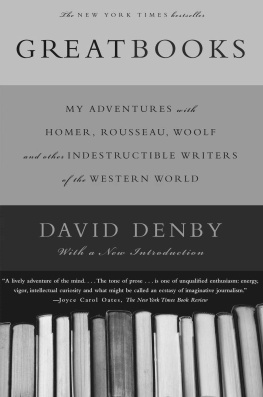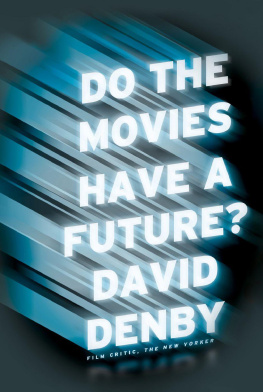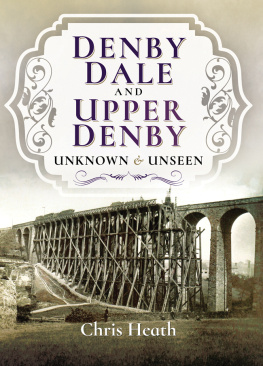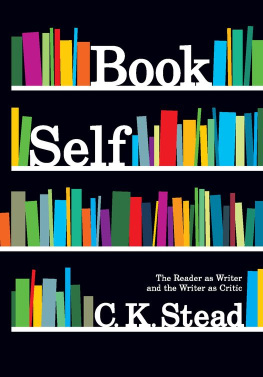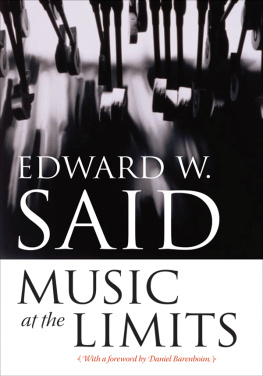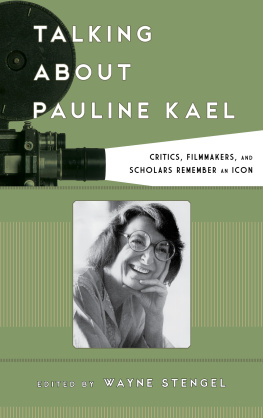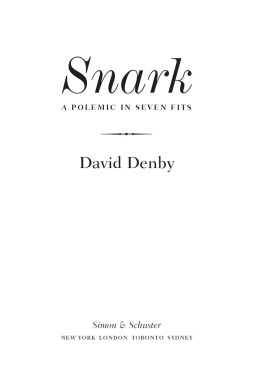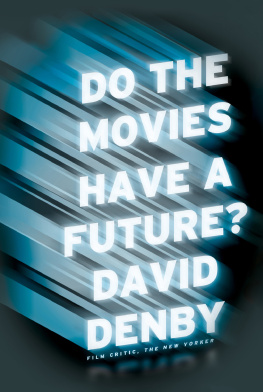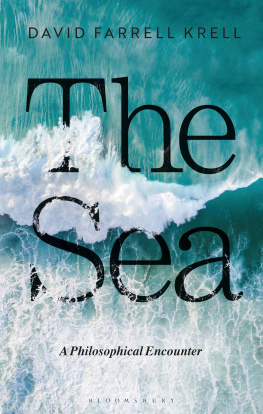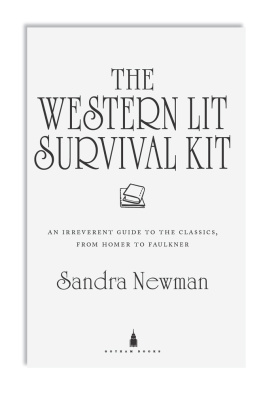PRAISE FOR DAVID DENBYS GREAT BOOKS
Mr. Denby carries the reader along on the crest of his excitement, making vivid for us the ideas and feelings in his readings.... In Great Books as a whole, he reveals the transcendent nature of Western literature.
Christopher Lehmann-Haupt, The New York Times
High adventure... Denby reads the Great Books as if his life depended on it.
Michael Harris, Los Angeles Times
In effect, he has produced the ultimate Cliffs Notes, an entertaining and perceptive look at our moral, political and literary heritage...
Paul Galloway, Chicago Tribune
Unusually angled, vivacious, and candid...
Frank Kermode, The New York Review of Books
[A] wonderful book.... Much of the pleasure of reading Great Books comes from being swept along by [Denbys] fervor.
Maureen Corrigan, Newsday
An exalting reinforcement of the idea that literature and life are inseparable... Denby has produced a book unlike any other.
New York magazine
This is a magnificent book.
Robert Cushman, The Toronto Globe and Mail
Someone at Columbia University owes David Denby an honorary degree. An edifying book... [a] serious and sometimes moving testimony to the power of great books to instruct and delight.
Michael Brub, Dissent
A multi-layered, richly satisfying work. Inspiring reading for any lover of the written word. One can only grow by reading books such as this.
Tom Cooper, St. Louis Post-Dispatch
... intelligent, fair-minded and informative...
Michael Parkenham, The Baltimore Sun
A captivating book that casts light on many things: on the job of a critic, on what classics are, on the pleasure of sustained reading.... If... you envy Mr. Denby his year-long reading party, you should read his exuberant book.
The Economist
An important truth shines through on every page of Denbys account of his time with these books.
Geoffrey Norman, American Way
Fascinating.... Mr. Denbys account shows us how engagement with ideas... matters, not just in the classroom discussion but how they can resonate through a life.
Norman Oder, Dallas Morning News
He [Denby] makes these classics as vivid as any movie or TV show.
Art Jester, Lexington Herald
What an invigorating, wonderful book this isin its honesty, in its originality...
Michael Skube, Atlanta Journal-Constitution
... superb... a heartening portrait of American education and a substantialsometimes enthrallingread.
Publishers Weekly
His thick description of what learning and teaching the great books actually means to us today puts to shame the facile speculation that has heretofore dominated culture wars journalism. In important ways, this is one of very few truly good books on the culture wars.
Kirkus
[Denbys] studying Homer, say, with eighteen-year-olds makes for an astonishingly rich read.
Elle
Anyone who likes to read will spend many happy hours with this book. It goes from the Bible to Machiavelli, to Boccaccio, to Marx, to Nietsche, etc. I could not put it down. All I can say is that it is one of the most interesting books I have read in a long time and I strongly advise anyone who wants to keep up a literary life to read it. It is a fascinating account of the literary world and will answer any questions that one might have about literature.
Brooke Astor
His year of study, which he shares with us in this captivating intellectual exercise, leaves him and the reader reinvigorated, reinspired, and restored to the life of the mind. I feel I owe Columbia College and Professor Denby tuition.
Governor Mario Cuomo
The academy is filled with people who are trained to write about writing; Denby knows how to write about readinga far rarer skill, and one that he combines with candor, modesty, and an unfailingly alert intelligence. Denby may be the least jaded man in the Western world. And his unforced, conversational style makes this education sentimentale a pleasure to read.
Henry Louis Gates, Jr.
He sustains a variety of tone, subject matter and approach that keeps Great Books alluring and readable throughout.... I was torn between getting out a copy of the book he had just discussed and reading it and going on with Denby. In every case, I went on with Denby.
Jane Smiley, Chicago Tribune Books
Thank you for downloading this Simon & Schuster eBook.
Join our mailing list and get updates on new releases, deals, bonus content and other great books from Simon & Schuster.
C LICK H ERE T O S IGN U P
or visit us online to sign up at
eBookNews.SimonandSchuster.com
Contents
Acknowledgments
This book would not have been conceived, written, or published without the encouragement and support of four exceptionally strong-willed persons: Kathy Robbins, literary agent; Alice Mayhew, editorial director of Simon & Schuster; Tina Brown, editor of The New Yorker; and the most formidable of all, Cathleen Schine, novelist, mother, friend, and wife.
I would like to thank the many students, teachers, and administrators I met at Columbia, both those named in the book (the teachers and administrators accurately, the students pseudonymously) and those unhappily omitted for lack of space. They all put up with my intrusions into the classroom and patiently answered questions in hallways, elevators, dorm rooms, offices, quadrangles, streets, and restaurants. I would particularly like to thank Kathryn Yatrakis, the associate dean of the college; Professor Eileen Gilooley, the administrative coordinator of the Literature Humanities and Contemporary Civilization courses; the former directors of those courses, Professor James Mirollo and Professor J. W. Smit, respectively; and, for general support, Professors Andrew Delbanco and Michael Rosenthal.
For this book about reading, I asked some of the best readers I could find (none connected with Columbia) to criticize individual chapters. I am especially grateful for the extraordinary efforts of Louis Menand, whose brilliance, logical sense, and sweet stubbornness have already become legendary among readers, friends, and students; and I am indebted as well to Adam Gopnik, Jonathan Lear, Mark Lilla, Judith Shulevitz, Henry Finder, Paul Berman, Nancy Franklin, Robert Caserio, and Penny House. My sense of gratitude to all of them leads me to insist that any remaining errors and misconceptions in the book are entirely my own responsibility.
I would also like to thank, at Simon & Schuster, Lisa Weisman and copy editors Fred Wiemer and Steve Messina; and at New York magazine, former editor Edward Kosner and current editor Kurt Andersen, who patiently tolerated my occasional absences; and Annys Shin, who did some necessary fact-checking.
In loving memory of
EZRA LAWRENCE DENBY
and
IDA HARKAVY DENBY
We seek knowledge only because we desire enjoyment, and it is impossible to conceive why a person who has neither desires nor fears would take the trouble to reason.
Rousseau,
Discourse on the Origin of Inequality
Introduction to the Second Edition
(2005)
When I was working on Great Books a little more than a decade ago (in the years 1991 to 1995), only the most prescient Americans would have predicted the rise of Islamic fundamentalism as a world threator the enraged American response, for good and for ill, to that threat. From the vantage of 2005, the book appears to have been written in a state of relative innocence. What I was fretting about in 1991 was philistinism and politicization: the theory-based political attack on the Western classics from within the university, and the threatened neglect or supercession of the books as art and thought; and, correspondingly, the bluntly instrumental defense of Western classics by those whose rhetorical fervor betrayed an evident desire to see literature and philosophy function as a patriotic shield. By rereading a representative group of textsColumbias famous required undergraduate courses, Literature Humanities and Contemporary CivilizationI hoped to enter the debate from the ground up, in defiance of politics and of academic theory. The point, I thought, was not to harass Plato, Sophocles, Augustine, Hume, Kant, and Jane Austen with some prearranged interpretive scheme, or to address them from the outset with the belief that they were entirely innocent of any connection with power, but, instead, to read them in as unmediated a way as possible and come to my own conclusions. Read, sit with nineteen-year-olds and their teachers, note it all down, and make a report on my experience. Exposition before interpretation! That was my motto. I wanted to let the books breathe a bit, and I wanted to breathe in unison with them.
Next page
